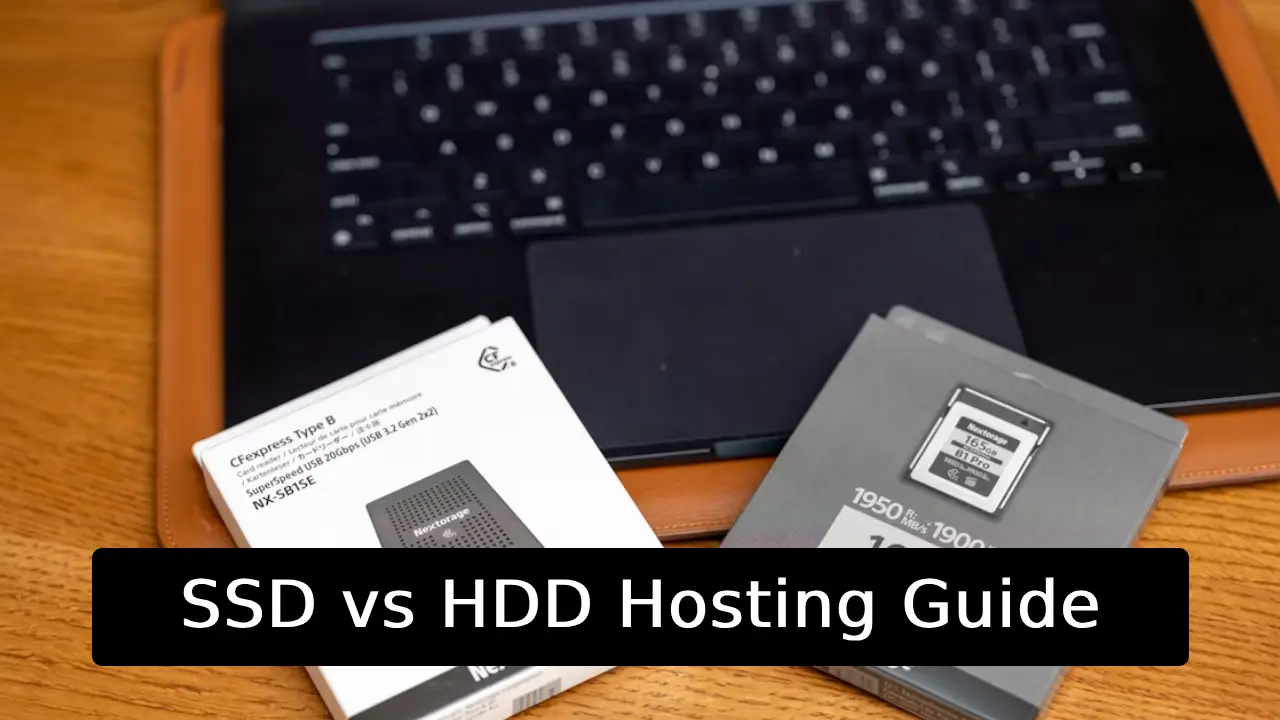SSD vs HDD Hosting: Why Your Storage Choice Defines Website Success
SSD vs HDD hosting isn’t just tech jargon—it’s the backbone of your website’s performance. In today’s digital landscape, where 40% of users abandon sites taking >3 seconds to load, your storage drive directly impacts speed, user satisfaction, and search rankings. Let’s dissect how SSDs and HDDs stack up in web hosting and why speed dictates your site’s fate.
Understanding the Tech: SSDs vs HDDs
HDDs (Hard Disk Drives) rely on spinning magnetic disks and mechanical arms to read/write data. Think “vinyl record player.”
SSDs (Solid State Drives) use flash memory chips—no moving parts—like a USB drive. This fundamental difference fuels their performance gap.
Read also: Managed WordPress Hosting vs Generic Hosting
Key Technical Differences
- Speed: SSDs offer 100× faster data access (0.1ms vs HDD’s 5–10ms latency).
- Durability: No moving parts make SSDs shock-resistant; HDDs are prone to mechanical failure.
- Power Use: SSDs consume 50% less energy, reducing server heat.
SSD vs HDD Hosting: The Speed Revolution
1. Page Load Times & User Experience
- SSD Hosting: Delivers pages in <1 second. Example: An e-commerce site using SSDs saw 20% lower bounce rates.
- HDD Hosting: Averages 3–5 seconds—enough to lose 50% of mobile users (Google Data).
💡 Real Impact: For every 1-second delay, conversions drop by 7% (Akamai).
2. Database & Dynamic Content Performance
SSDs dominate in IOPS (Input/Output Operations Per Second):
- SSDs: Handle 100,000+ IOPS.
- HDDs: Max out at ~150 IOPS.
Why it matters: Dynamic sites (e.g., WordPress, WooCommerce) process 100s of database queries per visit. SSDs execute these near-instantly; HDDs create bottlenecks.
3. SEO and Core Web Vitals
Google prioritizes sites with optimal LCP (Largest Contentful Paint) and FID (First Input Delay). SSDs directly improve these metrics by:
- Reducing TTFB (Time to First Byte) by 200–300ms.
- Ensuring smoother script execution.
Sites on SSDs frequently rank higher—speed is a confirmed ranking factor.
Cost Analysis: Are SSDs Worth the Investment?
| Storage Type | Avg. Cost (Monthly) | Value Proposition |
|---|---|---|
| HDD | $1–$3/TB | Budget-friendly for archival storage |
| SSD | $5–$15/TB | 100× faster speed, better SEO, higher conversions |
Smart compromise: Use SSDs for databases/OS and HDDs for media backups.
Beyond Speed: 3 Hidden Benefits of SSD Hosting
- Enhanced Security: Faster encryption/decryption for SSL/TLS.
- Scalability: Handles traffic spikes without slowdowns (critical for Black Friday sales).
- Reliability: 0.5% annual failure rate vs HDDs’ 2–5% (Backblaze Study).
When HDD Hosting Still Makes Sense
- Massive Storage Needs: Hosting video archives or backups? HDDs offer 10TB+ affordably.
- Static Sites: Brochure sites with minimal traffic won’t leverage SSD advantages.
Choosing the Right Hosting: 4 Actionable Steps
- Audit Your Needs: Dynamic sites = Prioritize SSDs. Media libraries = Hybrid storage.
- Verify Provider Specs: Avoid vague “premium storage” claims—demand NVMe SSD details.
- Test Performance: Use tools like GTmetrix to check TTFB pre-purchase.
- Start Small: Many hosts (e.g., SiteGround, Cloudways) offer SSD plans at $3–$10/month.
📌 Pro Tip: For database-heavy apps (Magento, MySQL), NVMe SSDs (3× faster than SATA SSDs) are game-changers.
Speed Isn’t Optional—It’s Essential
SSD vs. HDD hosting boils down to growth vs. stagnation. While HDDs save pennies, SSDs earn dollars through retained users, higher rankings, and seamless scalability. In 2024, when 53% of mobile visits abandon slow pages, SSDs aren’t a luxury—they’re your baseline.
Ready to upgrade? Explore SSD-optimized hosting plans (external resource) or dive deeper into optimizing Core Web Vitals.

